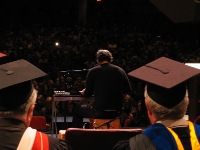In the current The Walrus there is a good (cover) article, “Game Theories“, by Clive Thompson. The article starts withy Edward Castranova’s online papers on online game economies and moves from there cover some of the emerging economic phenomena. The closing question is whether players really have ownership rights to their virtual property and what would happen if a game closed down rendering that property worthless (as may be happening to There.) Would/will people sue for lost income/value or do the game companies own it all, despite the underground economies that have emerged?
Continue reading The Walrus: Game Theories
bad kitty designs (for virtual living)
bad kitty designs is a site that sells designs for the online game There. You can buy clothing designs for men and women, furniture, and so on. It has nice interface for looking at the different designs. The designs are on the Victorian naughty side.
PhiloLogic
PhiloLogic – The ARTFL Project XML/SGML Full-Text System is now available for download. PhiloLogic is an extremely fast large corpus search engine that was developed by Mark Olsen and company at Chicago for the ARTFL collection of French lit from the revolution to the 1900s. The original textbase was one of the first (if not the first) large scale diachronic literary full-text databases. PhiloLogic has proven its worth over the years.
Continue reading PhiloLogic
Spring 2004 Convocation
 Tuesday I went to the 2004 convocation where Daniel Lanois was honoured along with our third cohort of Multimedia students. Convocations are an emotional event for me – after all the marking and lecturing I can give the students a hug and feel joy for them. These rituals are not meaningless, they orient us to what has been achieved and allow us to be our best for a moment – to congratulate students rather than critique their work.
Tuesday I went to the 2004 convocation where Daniel Lanois was honoured along with our third cohort of Multimedia students. Convocations are an emotional event for me – after all the marking and lecturing I can give the students a hug and feel joy for them. These rituals are not meaningless, they orient us to what has been achieved and allow us to be our best for a moment – to congratulate students rather than critique their work.
Continue reading Spring 2004 Convocation
Armchair Arcade
Armchair Arcade! is an online journal and discussion forum on classic gaming. They are onto their third issue. I like the retro look to the issue “covers”. The articles so far seem mostly written by the site’s authors – they need to widen the pool of authors. What is not clear is how submissions are reviewed which may discourage academics (not that academics, with our strange rituals of promotion, are good writers for such venues.) They model themselves more on a magazine than a journal.
Continue reading Armchair Arcade
HEML: Historical Event Markup and Linking Project
The Historical Event Markup and Linking Project is a brilliant project by Bruce Robertson that defines a markup language for events in space and can then generate timelines, animated maps and interactive maps. Combines the temporal and geospatial ideas were are working on for the Globalization Compendium.
Stoa.org Blog
The Stoa is a site/blog by Ross Scaife. The Stoa project has been reviewing and publishing online works especially works about classical subjects like our Trajan’s Column Project. Ross has changed the interface of the home page to a blog. I wonder if this will become a trend – that people use blogs for the entry points as they allow easy updating of news and ideas?
Open Access: Berlin Declaration
The Berlin Declaration is a manifesto for creators of digital knowledge who believe in open access. This came to me from stoa.org.
Continue reading Open Access: Berlin Declaration
New Variorum Shakespeare
To Tag or Not to Tag [May. 26, 2004] by Patrick O’Kelly is a story in O’Reilly’s XML.com site about “The New Variorum Shakespeare and XML”. Not only is it interesting that an XML site would publish a long article about Shakespeare and the TEI, but the author has taken the time to provide some of the complex history. Julia Flanders and Judith Altreuter, both of whom have been doing great work at the Women Writers Project and MLA respectively, are quoted.
There often seem to be landmark works that get digitized (over and over) to test new models. Michelangelo’s David is one of those. Every new 3D system scans David to show off the technology with a iconic statue. Likewise Shakespeare is a landmark text to transform and then compare to previous versions. The Variorum is not the only XML edition of Shakespeare, but it may set a standard for how critical editions are done. As Cliff Lynch said at COCH/COSH this weekend, in the next decades we will digitize everything of importance in the canon. We will need examples to compare what we do to, and we will need an army of humanists to do it appropriately.
Past, Present and Future at McMaster
This July I step down as Assistant to the Dean for Computing at McMaster. It has been 10 years. When I arrived the computers were not networked, we had no web server, and no servers. Now the Humanities Computing Centre, now Humanities Media and Computing, runs 15 or more servers, has far too many web services and everything is networked.
At an Open House we celebrated Sam Cioran, who in the 1980s started the Centre moving us from language labs to multimedia computing. This July my colleague Andrew Mactavish takes over. If there is one thing that seems to work it is sustained attention – directing something for long enough to build a network, make mistakes, and correct them. I will miss directing the Centre.
McMaster Daily – NEW! Posted on May 31: Humanities celebrates past, present and future of multimedia